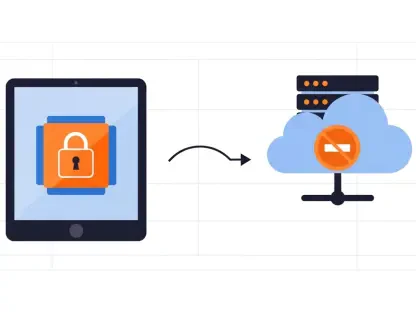Artificial Intelligence (AI) has revolutionized various sectors, and website management and SEO (Search Engine Optimization) are no exceptions. The growing complexity of managing global websites necessitates innovative solutions, and this is where AI tools come into play. They enhance efficiency, productivity, and provide a competitive edge in optimizing websites for international audiences. This article delves into the myriad ways AI can assist in the realm of global website management and SEO, providing an engaging and informative read for tech enthusiasts and business professionals alike.
Introducing AI into website management and SEO offers considerable benefits. Not only do AI tools become instrumental in handling extensive data, but they also facilitate content localization and automate repetitive tasks effectively. However, it must be emphasized that AI serves as a complement to human expertise and not a replacement, underscoring the indispensable synergy necessary for optimal website management.
Enhancing Global Website Content
AI-Powered Translation Tools
Managing content across multiple languages is a challenging task for global websites. Traditional machine translation tools have often fallen short, especially with complex languages. However, advancements in AI-powered translation tools have markedly improved translation quality. These tools can perform initial translations that human editors fine-tune for accuracy. Prioritizing which content needs human review based on its type, category, and date can significantly streamline the editing process, ensuring timely and accurate content localization.
AI-powered translation tools achieve higher accuracy levels by leveraging large datasets and neural networks to understand contextual subtleties. The ability to process natural language more effectively allows these tools to produce more coherent and contextually appropriate translations. Consequently, businesses can now confidently use AI to handle initial translations before passing them to human editors for further refinement. This approach not only ensures quality content but also speeds up the localization process, making it more efficient and cost-effective.
Addressing Duplicate Content
Duplicate content can negatively affect SEO rankings, but global websites often have the same content in different languages targeting various countries. AI tools help identify such duplicates and adjust content to fit local contexts by modifying elements like spelling, currency, and measurements. This ensures that each version of the content caters specifically to the local audience without falling into SEO pitfalls.
AI tools employ sophisticated algorithms to detect and manage duplicate content effectively. They can distinguish between intentional duplication for localization purposes and unintentional duplication that may harm SEO. By making necessary adjustments to tailor content for specific markets, AI ensures that localized versions meet cultural and regulatory standards. Additionally, these tools can streamline the approval process by flagging content that requires human review for final adjustments, thereby ensuring compliance and relevance to local audiences.
Generating Image ALT Text
AI tools can automate the generation and translation of image ALT text. Image ALT text plays a crucial role in accessibility and SEO, yet it is often overlooked. By ensuring that ALT text is accurately translated and appropriately descriptive, AI tools contribute to better user experiences and improved SEO performance.
The process of generating image ALT text involves analyzing image content and context to provide meaningful descriptions. AI tools equipped with computer vision technology can identify objects, people, and scenes within images, thus enabling the automatic generation of relevant ALT text. This automation ensures that all images on a website are accessible to users with disabilities and enhances the site’s overall SEO by providing search engines with additional contextual information. The result is improved website accessibility and better search engine rankings, making AI a valuable asset in comprehensive SEO strategies.
Streamlining Content Creation
Localized Content Development
For businesses to thrive online, particularly in diverse regions, content must resonate with local audiences. AI-assisted research can swiftly identify content gaps and popular topics within a region, making content creation more targeted and effective. Small businesses often outperform their larger counterparts due to their ability to create localized content. AI tools can aid larger businesses in replicating this localized content success by automating the identification of unique local demands and topics.
The ability of AI to process vast amounts of data from various sources enables it to identify trends and preferences specific to different regions. By analyzing search queries, social media interactions, and online behavior, AI can uncover what local audiences are looking for and which topics are underserved. This insight allows content creators to address these gaps with relevant and engaging material, thereby increasing user engagement and enhancing the website’s overall performance. Moreover, AI can automate the generation of content ideas, helping businesses maintain a steady flow of fresh, localized content.
Utilizing Local Visuals
Visual elements are essential in making content relatable to a local audience. Using AI to analyze and suggest appropriate visuals, such as images featuring local models, can enhance user engagement. Furthermore, AI can assist in transcribing and translating video content, ensuring multimedia elements are accessible and localized for different markets.
AI-powered image recognition tools can scan and analyze visual content to determine the most appropriate visuals for different regions. These tools consider cultural nuances, local aesthetics, and even color preferences to recommend images that resonate with target audiences. By incorporating locally relevant visuals, businesses can make their content more appealing and relatable, thereby fostering a stronger connection with their audience. Additionally, AI’s capabilities in transcribing and translating video content ensure that multimedia elements are not overlooked, making comprehensive localization possible.
Advancing International SEO
Technical SEO Enhancement
AI tools are invaluable for technical SEO tasks that require meticulous attention to detail, such as hreflang tag URL mapping review. These tools are also effective in reviewing tags and the auto-generation of code elements like language tags, title tags, meta descriptions, and canonical tags. Given the labor-intensive nature of these tasks, especially for large and multilingual sites, AI can help significantly reduce the workload by identifying and suggesting corrections.
By automating these routine yet essential tasks, AI allows SEO professionals to focus on more strategic initiatives. AI tools can scan websites to ensure that hreflang tags are correctly implemented, preventing issues related to language targeting and regional content. They can also identify missing or incorrect tags and provide recommendations for improvement. The precision and speed of AI in handling these technical aspects ensure that websites remain optimized for search engines, enhancing visibility and reach across different markets.
Automated Site Audits
AI can analyze site crawl reports to detect patterns in broken links and redirects. These tools can even suggest suitable redirects, thereby enhancing site navigation and usability. By automating these routine yet essential tasks, AI tools allow SEO professionals to focus on more strategic initiatives.
Automated site audits conducted by AI tools involve comprehensive checks of website health, identifying issues that may impact performance and usability. AI can quickly scan millions of pages, detect broken links, and suggest appropriate redirects. This capability ensures that users are directed to relevant content, improving the overall user experience. Additionally, AI can identify and remove redundant code, streamline website structure, and ensure compliance with SEO best practices. These automated audits not only save time but also enhance the website’s functionality and search engine rankings.
Enhancing Data Analysis and Website Management
Consistent Global Governance
For businesses managing multiple websites globally, maintaining consistency in data points, KPIs, report templates, and best practices is crucial. AI tools aid in governance by providing data visualization in performance reports, which simplifies the analysis of large datasets. They can also conduct competitor analyses, helping businesses stay ahead in each country’s market by understanding local trends and consumer behaviors.
AI-powered data visualization tools transform complex datasets into intuitive charts, graphs, and dashboards that make it easier to understand performance metrics across various regions. These tools allow businesses to monitor key performance indicators consistently, ensuring that all global websites adhere to unified standards. Additionally, AI can analyze competitors’ activities, offering insights into their strategies and identifying opportunities for differentiation. By providing a holistic view of global operations, AI tools enable data-driven decision-making and strategic planning, fostering sustained competitive advantage.
Audience Analysis and Persona Development
Managing multilingual content for global websites is a complex task. Traditional machine translation tools often struggle, especially with intricate languages. However, the advent of AI-powered translation tools has significantly enhanced translation quality. These advanced tools can handle initial translations, which are then fine-tuned by human editors for precision. Prioritizing content for human review based on its type, category, and recency can greatly streamline the editorial process, ensuring timely and accurate localization.
AI-driven translation tools achieve higher accuracy through large datasets and neural networks that grasp contextual nuances. Their enhanced ability to process natural language results in more coherent and contextually apt translations. Consequently, businesses can now rely on AI to manage initial translations confidently, leaving human editors to refine the output. This method not only guarantees high-quality content but also accelerates the localization process, making it more efficient and cost-effective. Therefore, the integration of AI in translation workflows significantly boosts both the speed and accuracy of content localization for global audiences.









